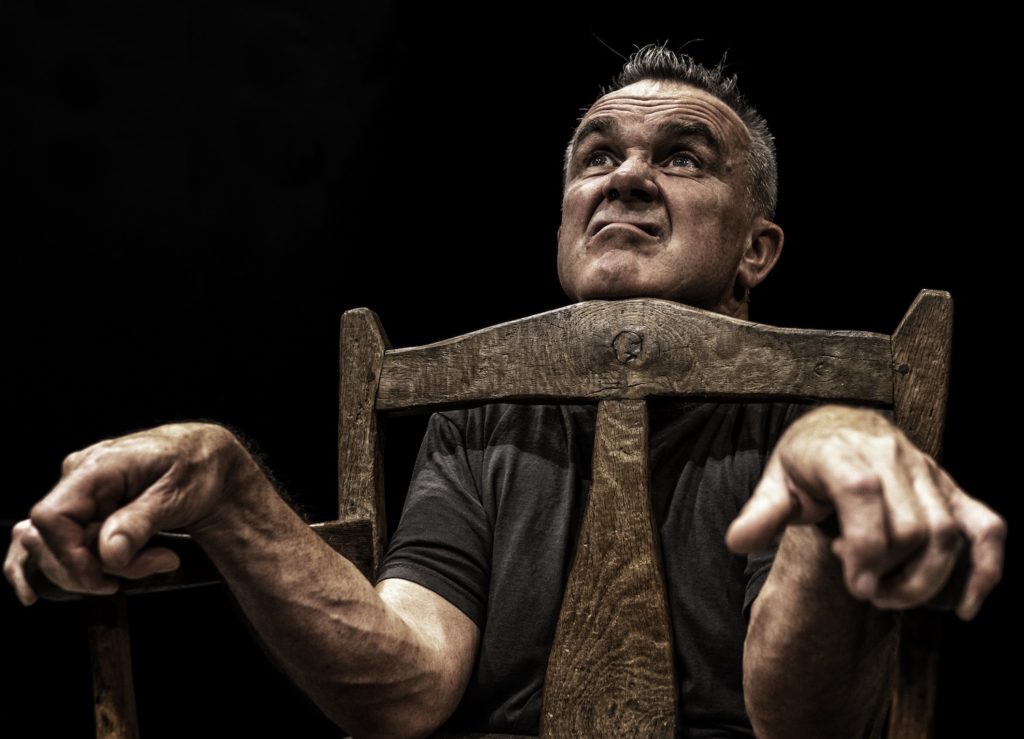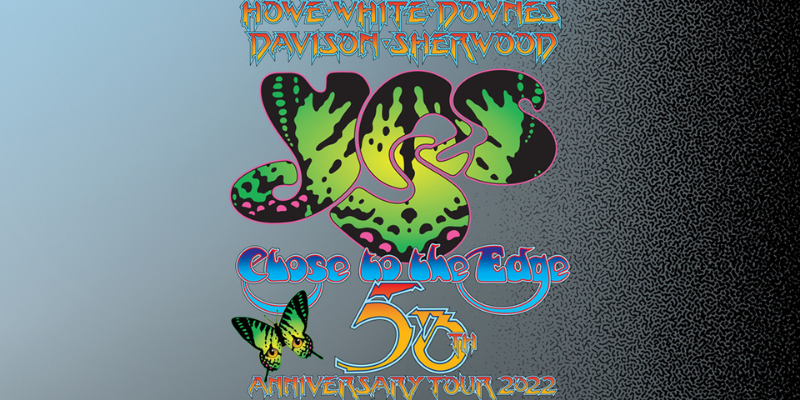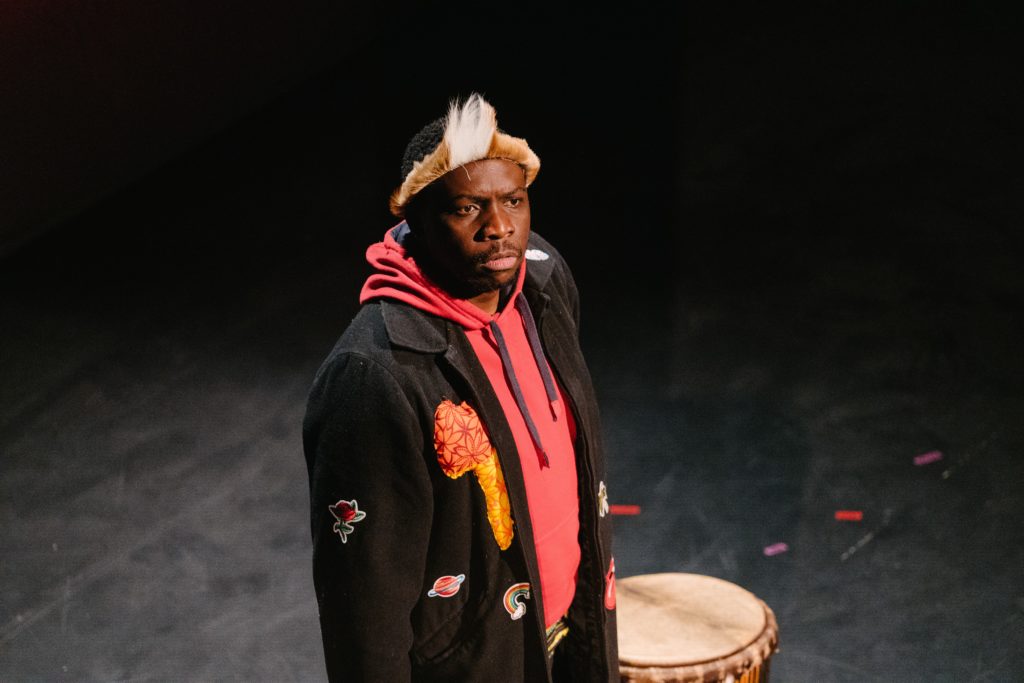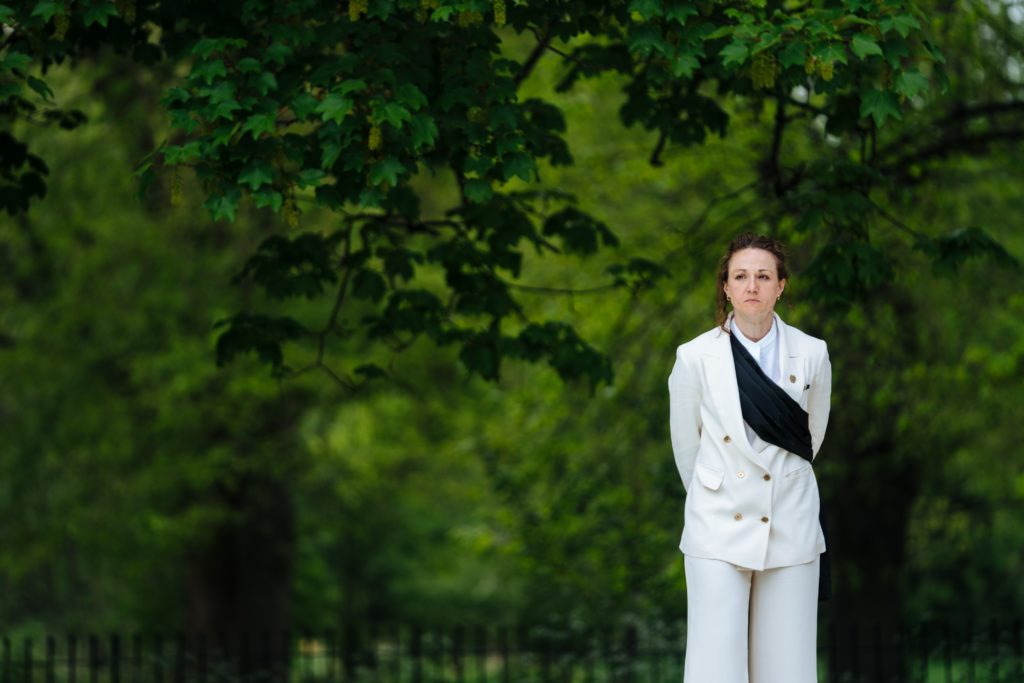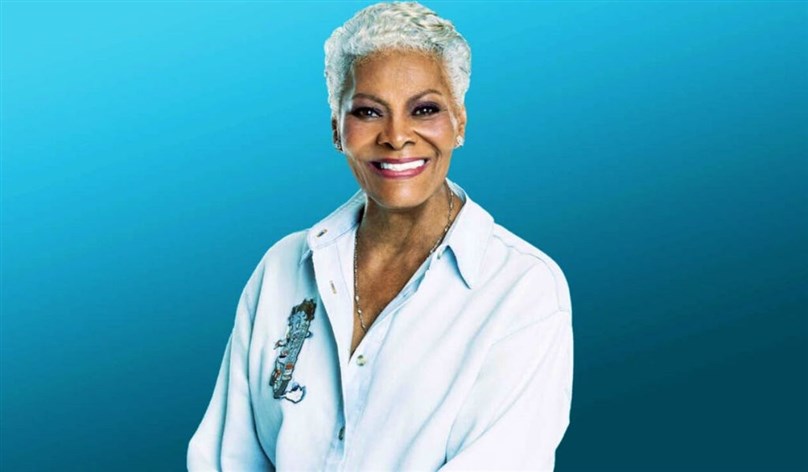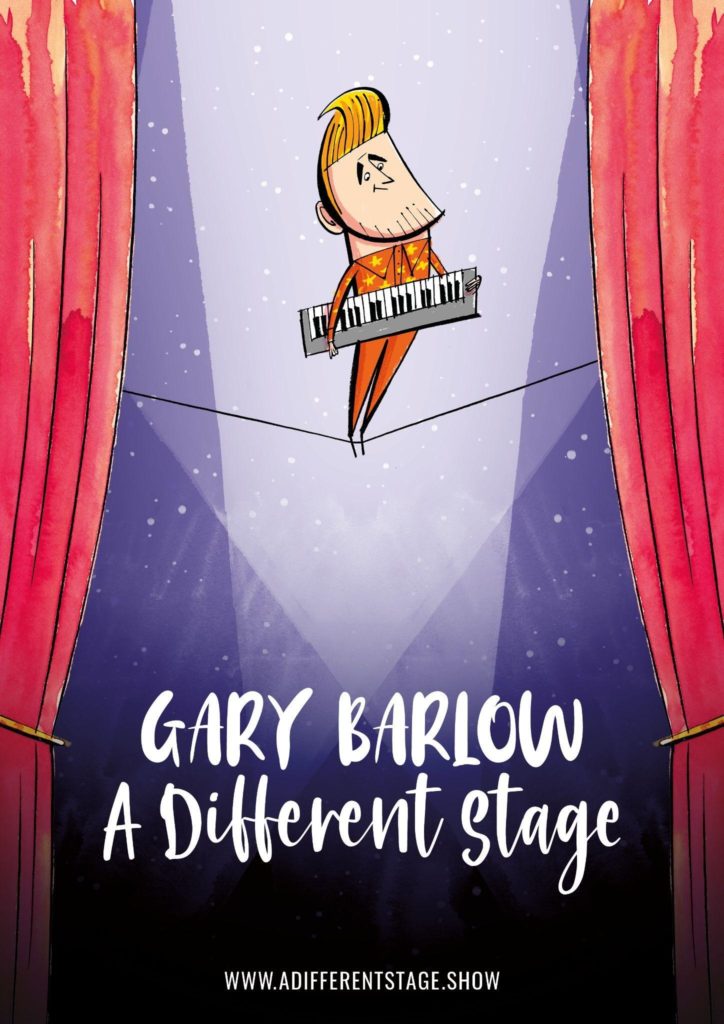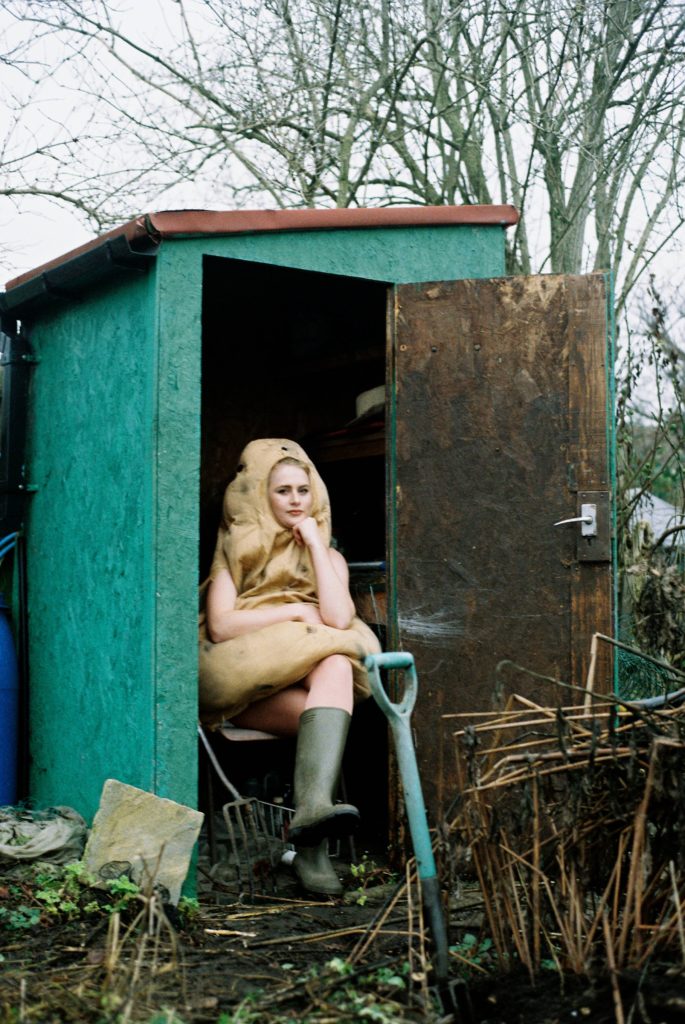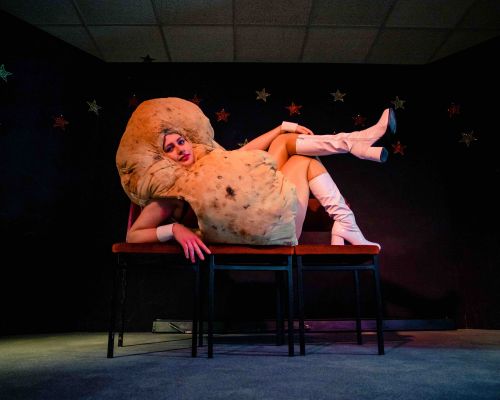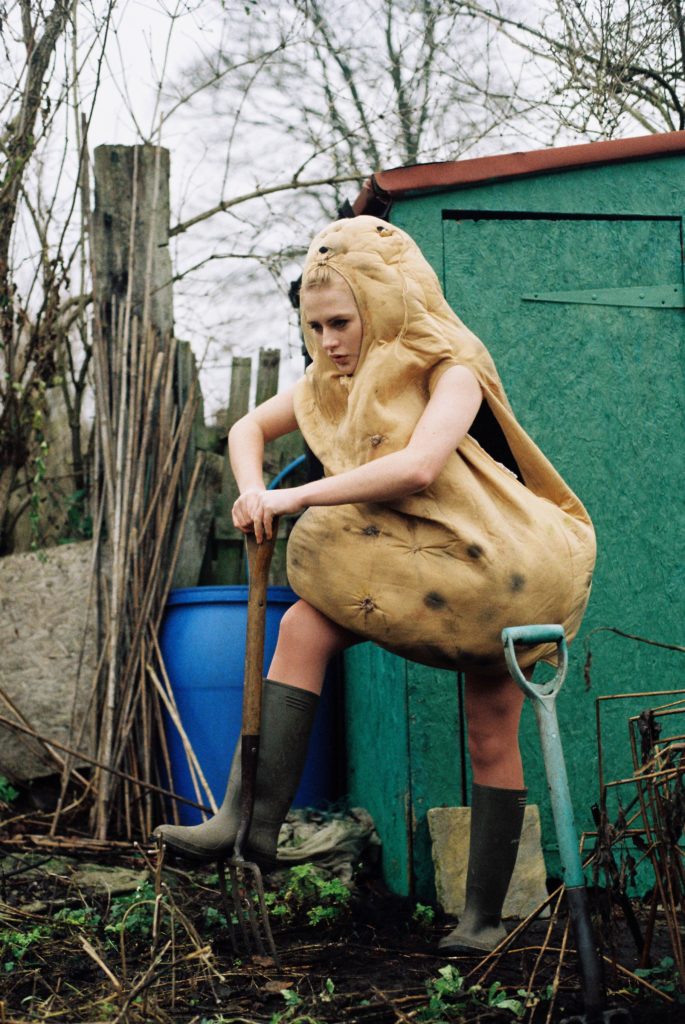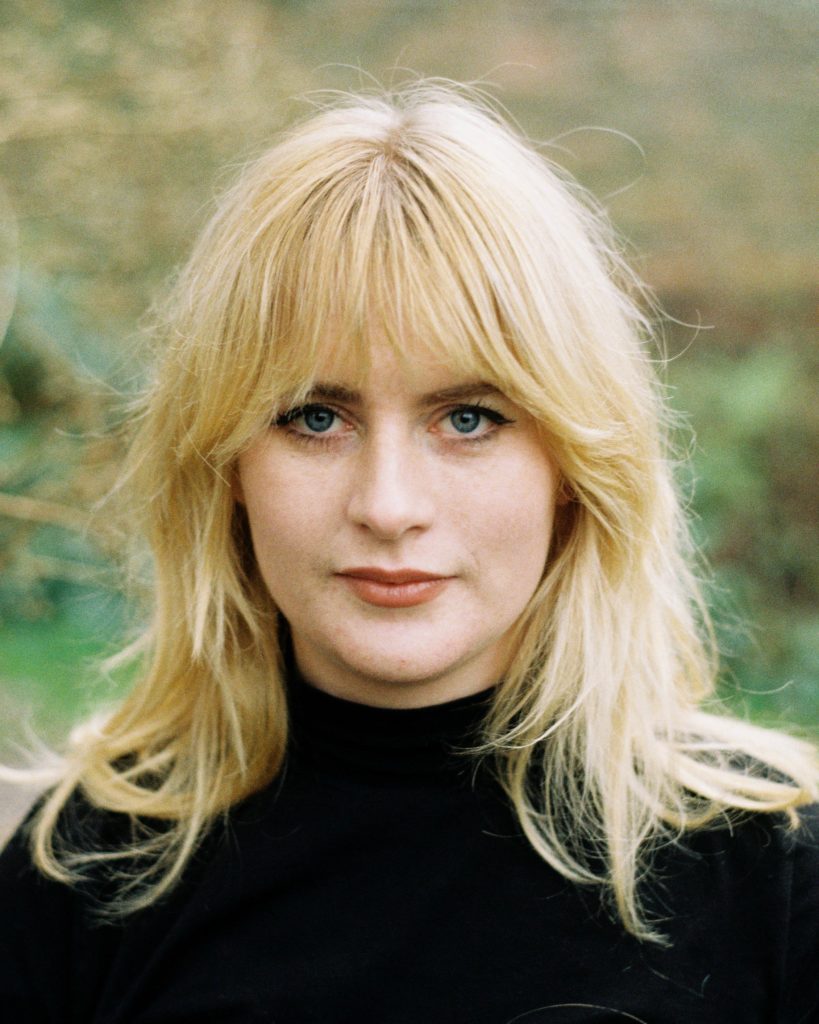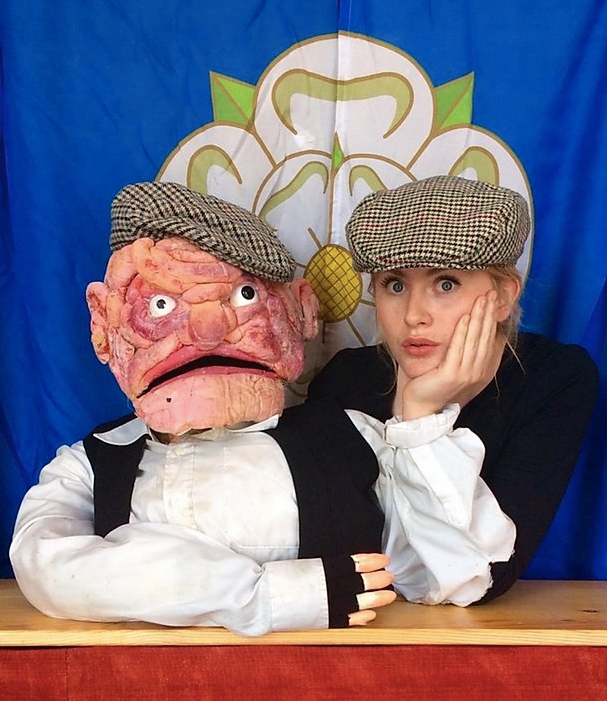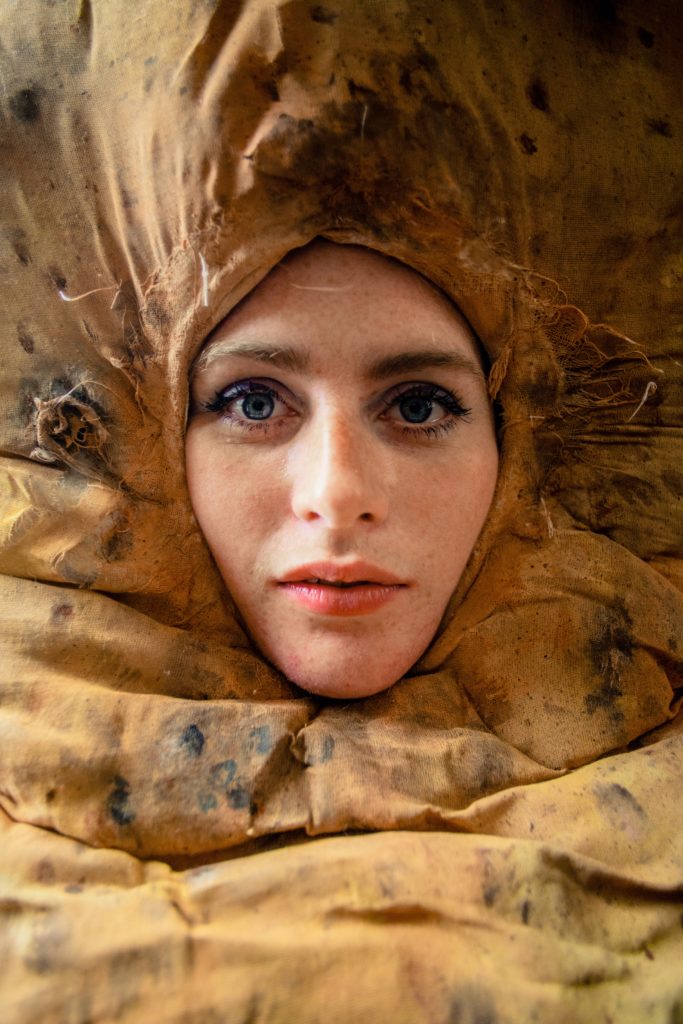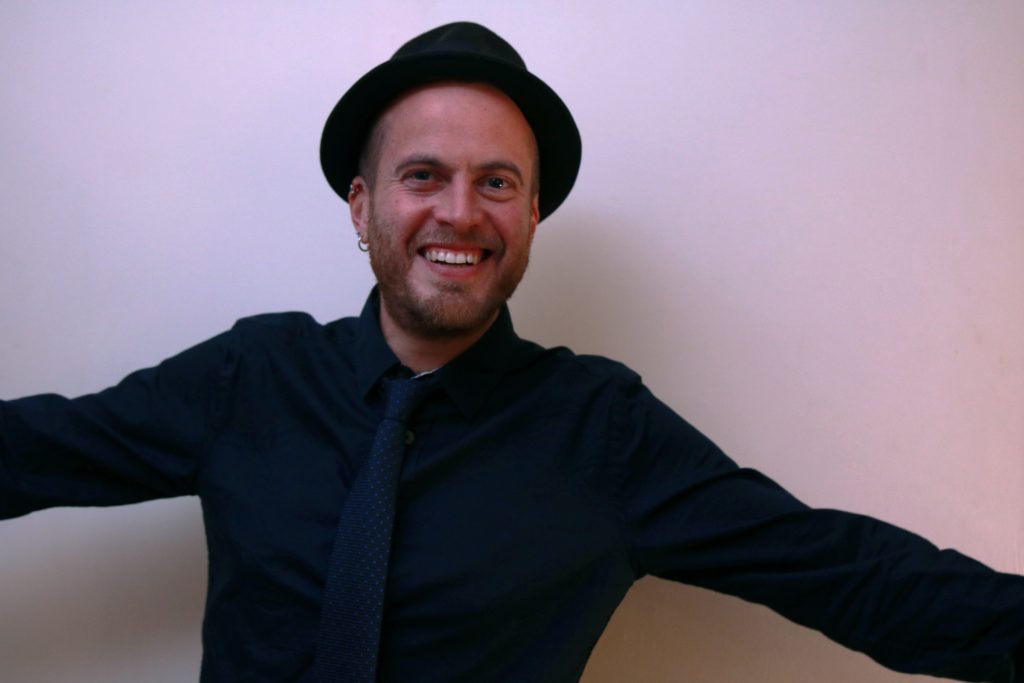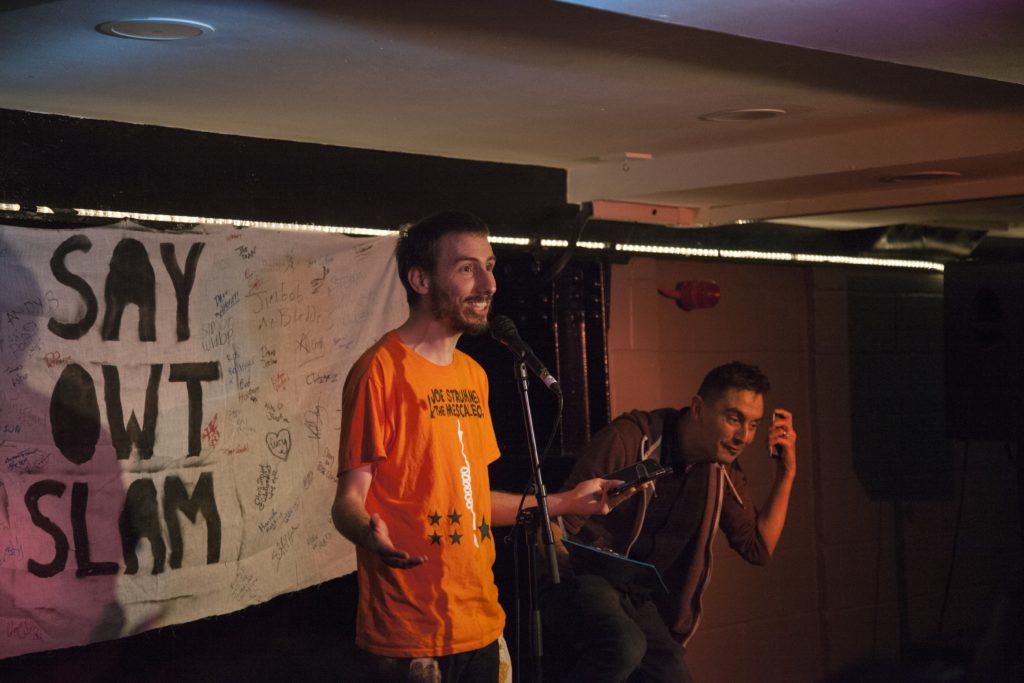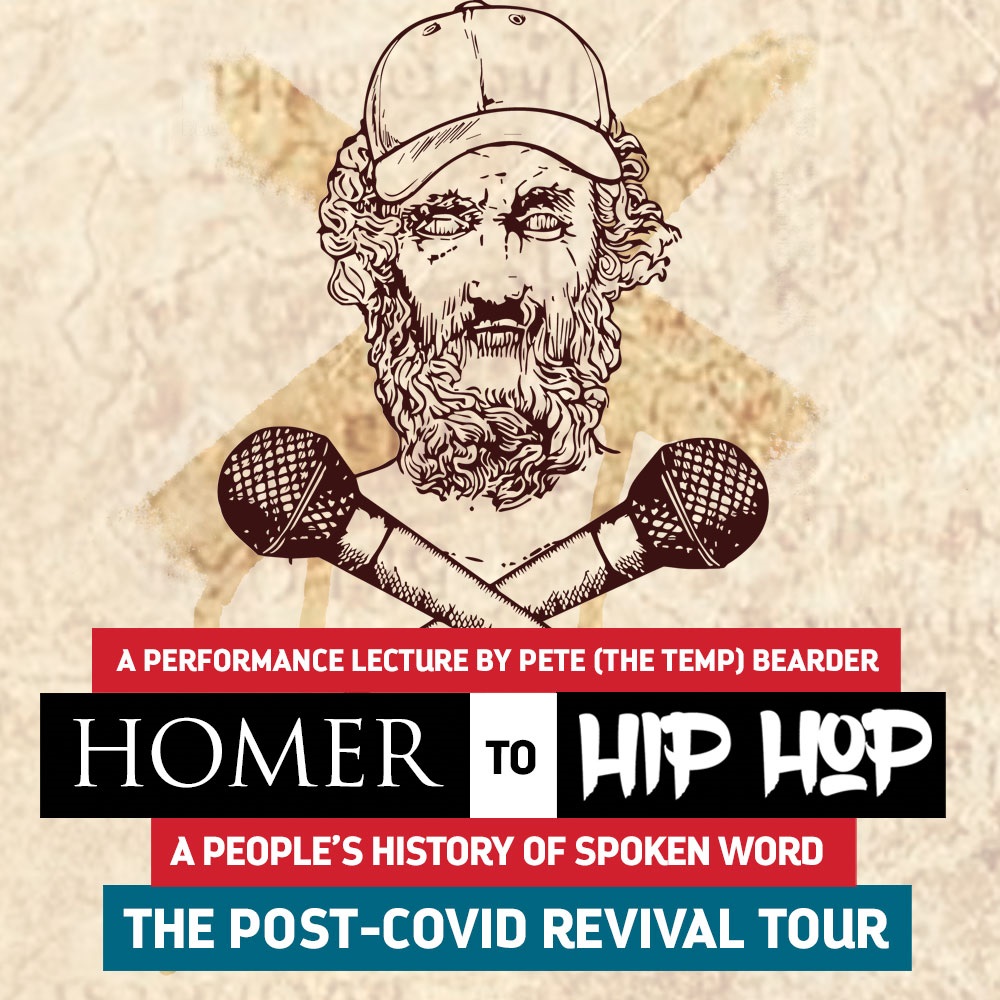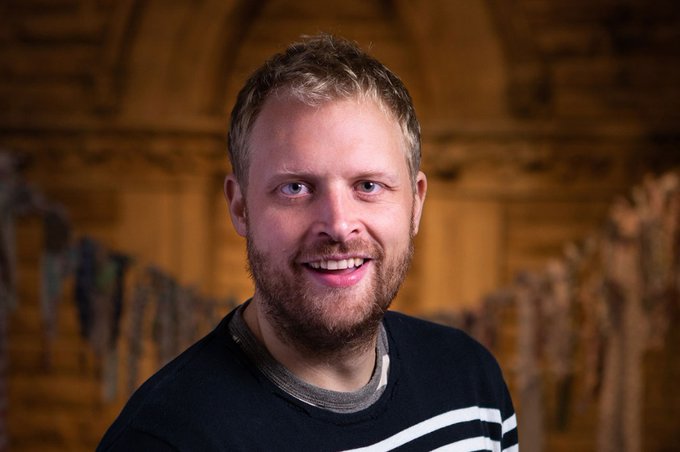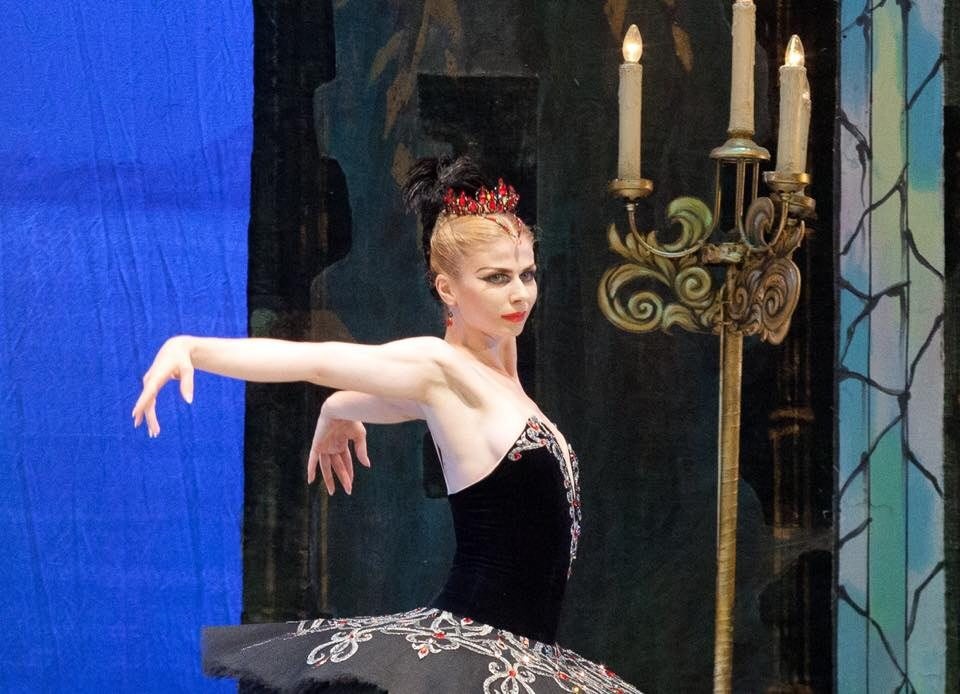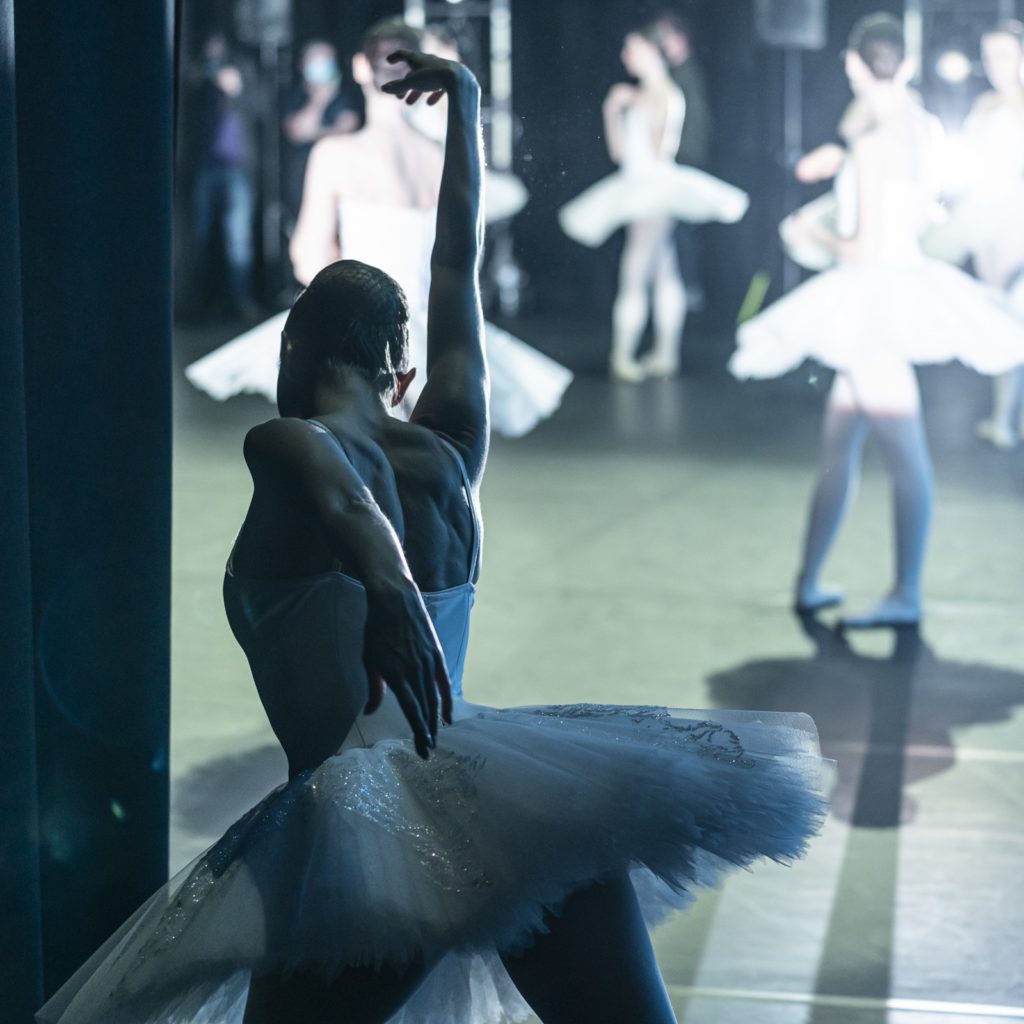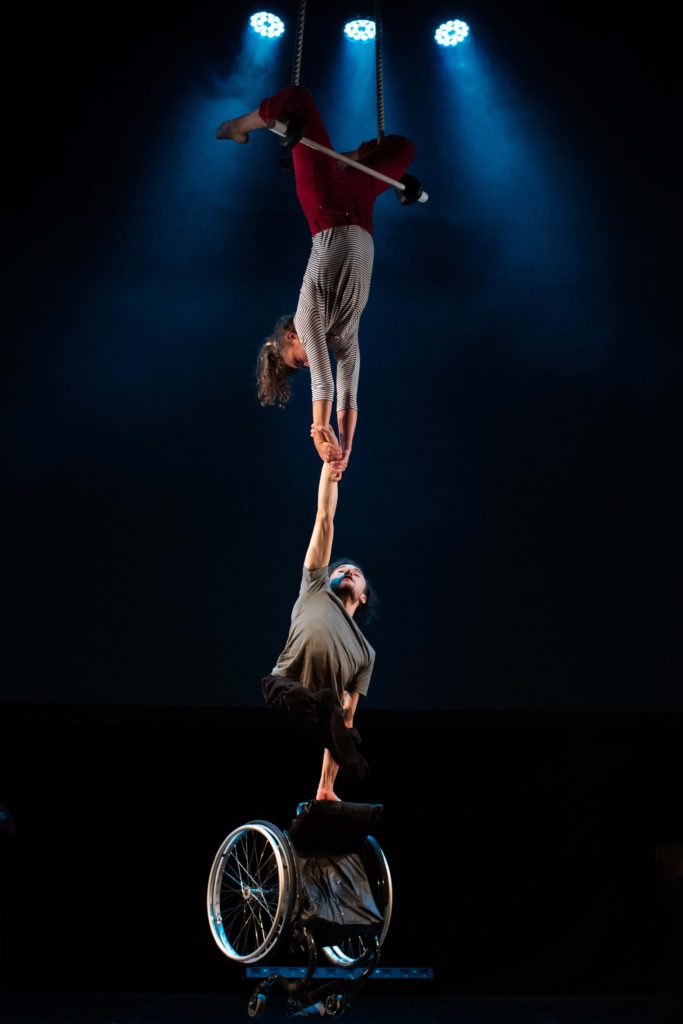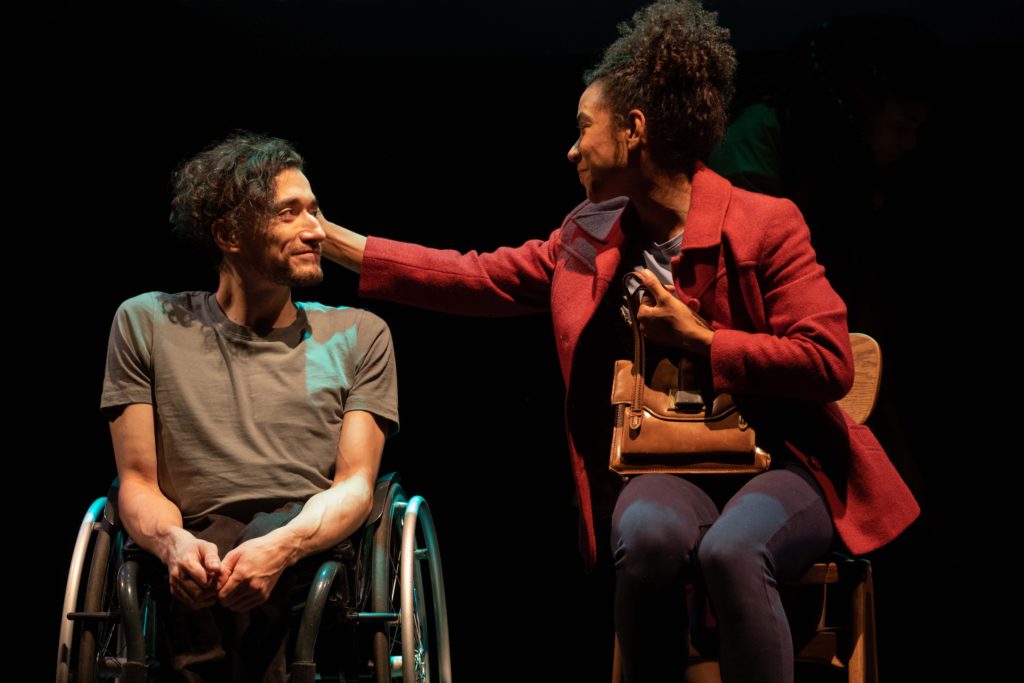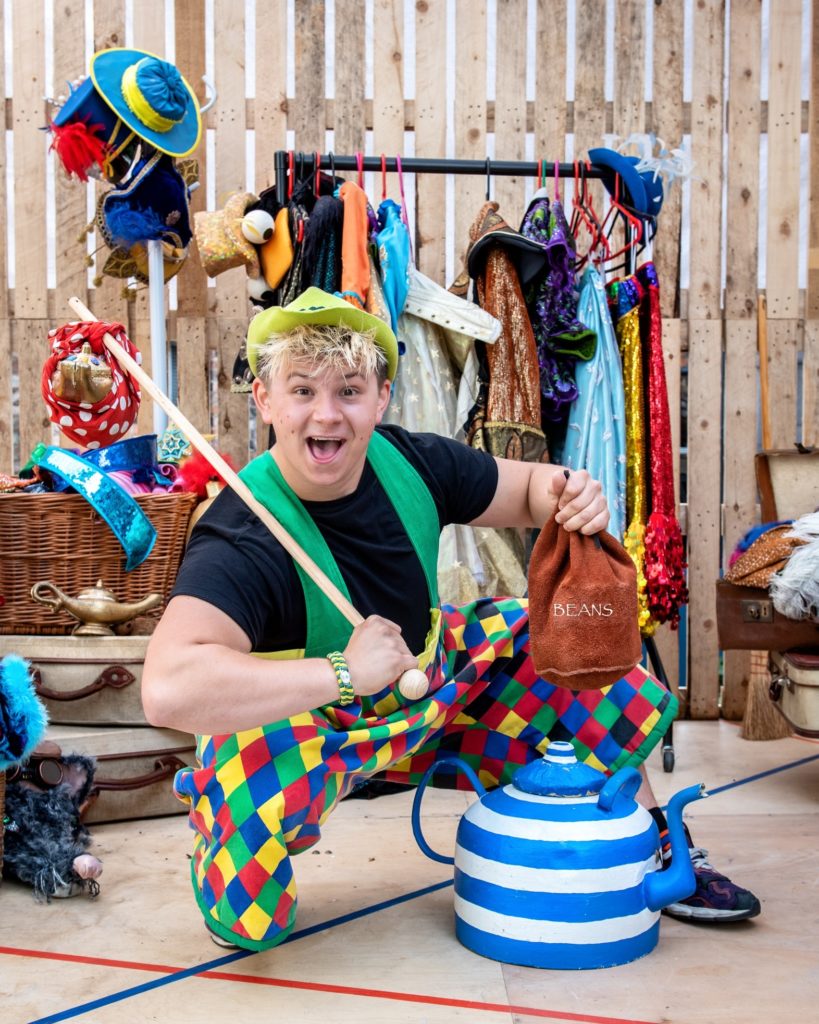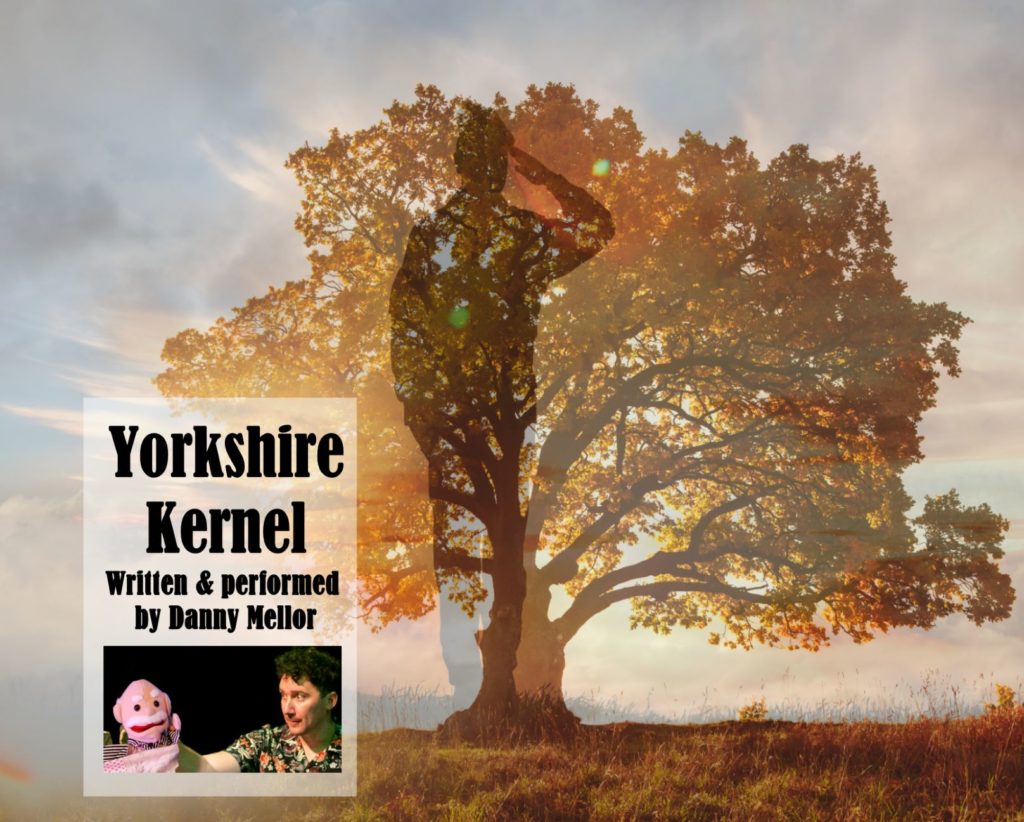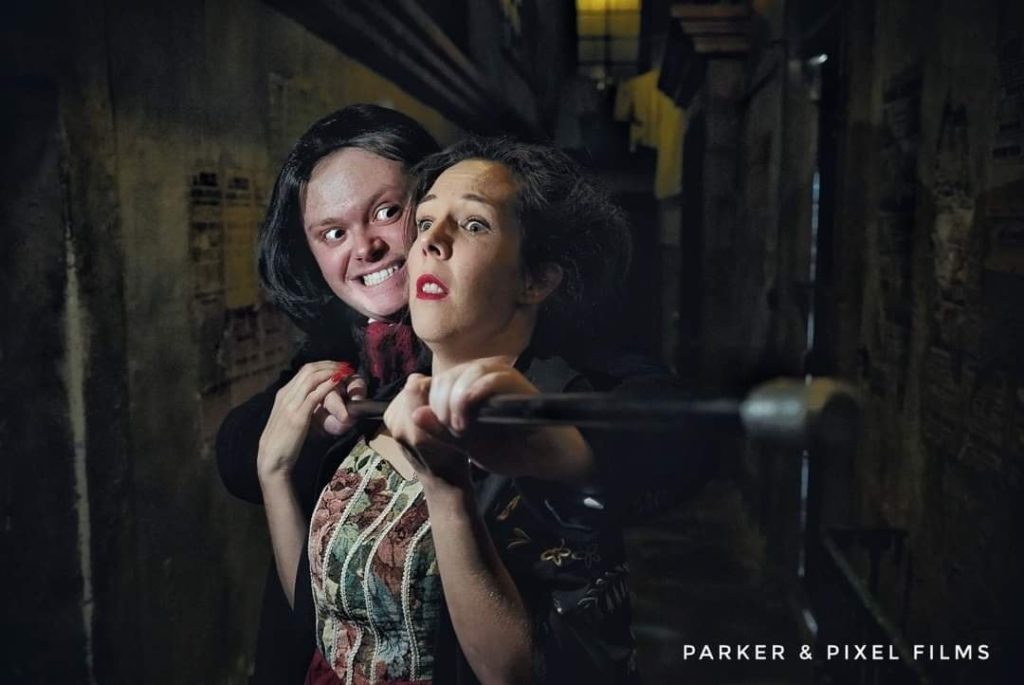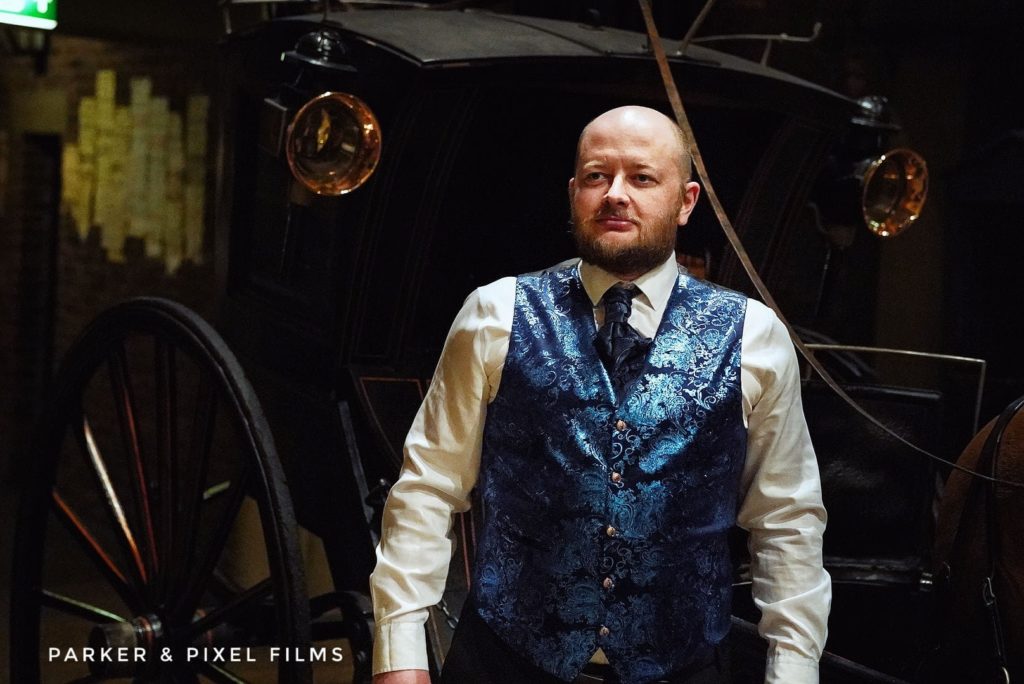
BOLSHEE, the York company for creative projects set up by theatre practitioners Paula Clark, Megan Bailey and Lizzy Whynes, will be performing at Green Shoots tonight and tomorrow at York Theatre Royal.
One of 20 new commissions from York professional artists, Boss B***h will “explore the infamous statement made by influencer Molly-Mae Hague and ‘celebrity nightmare’ Kim Kardashian that we all have the same 24 hours in a day as Beyonce”.
“Let’s challenge the toxic boss bitch narrative,” proclaim the Bolshee trio, who will deliver five minutes of female voices, beats and moves.
“We set up Bolshee creative projects in lockdown after I decided to leave my job at York Theatre Royal,” says Paula, who is now a freelance creative director and artist and runs Paula Clark Co-Creative Projects.
“There were loads of reasons why I left, but it’s important to say I’m still good friends with YTR! It’s where Megan, Lizzy and I all met and we still have a lot of love for it.
“But it was time for me to move on. Over that decade, I’d been a youth theatre practitioner, director (when cover for maternity leave), creative skills promoter, overseeing the TakeOver festival, and outreach director.

“I found I enjoyed my job in the pandemic because I could do more than I would normally do, but there’s always a glass ceiling, and that’s not unique to York Theatre Royal. It’s across arts buildings.”
Coincidentally, Megan had left her job and so had Lizzy. “It wasn’t connected, but there were lots of similarities about our negative experiences of the arts industry,” says Paula.
“We’ve all experienced profound sexism in the arts industry and I’ve struggled, being from a working-class background, to make headway, be heard and create change in the way I wanted.
“It feels like there’s a holding on to power by people who are worried about a disruption of power, a sharing of power across the industry and all the talk of wider representation. People are frightened, so they’re holding on to the old way. It’s not a level playing field.”
Paula recalls “starting to feel like a tick box”. “I was tired of being called ‘authentic’ by patronising old men on boards. I wanted to be in charge of my own creative direction, and I want to do more for social justice,” she says.
Cue the arrival of Bolshee. “I have over 20 years’ experience in theatre and community arts and my dream is that Bolshee creates projects that promote social justice, lift people up and include everyone in a creative industry environment that still doesn’t value women enough,” says Paula.

“It’s important that as a company we particularly support and encourage working-class women and girls. That’s why I’ve teamed up with Megan and Lizzy, both extremely talented young women. We feel like we have something to offer that isn’t quite like anyone else in York because we are not afraid to be Bolshie!”
The name Bolshee is a reclaiming of that word, ‘bolshie’ (definition: deliberately combative or uncooperative). “Assertive women have always been told they are Bolshie. We want to cast off the negative connotations. We’re ready and proud to be Bolshee women!” says Paula.
Megan is delighted that Bolshee is up and running. “It’s been a long while in the pipeline,” she says. “In those two years during lockdown, we’d sit on Zoom thinking about what we could do to be our own bosses on projects.
“There’s an elite that doesn’t want to let younger, bolshie women challenge what they’ve been doing, sitting in their leadership roles for a long time, but we want to find our space.”
Lizzy points out how the working environment in the arts world has changed. “Now you’re only employed for six months, a year at most,” she says. “All the jobs I went for were for three months; all short-term contracts.”
Paula rejoins: “People are holding on to the idea of arts buildings, but I don’t want to work in that structure. There’s all sorts of forms that can be brought together to involve people in culture. What’s brought the three of us together is that we’re more than just theatre makers.”

Megan, for example, has a background in set design from her theatre degree days at the University of York and has worked on websites too. “I also did an MA at Leeds University in culture, creativity and entrepreneurship because you need to have business acumen to run theatre and arts organisations.
“I definitely feel that can be lacking, particularly in human resources structures, where these things can get forgotten but it’s important to make your workforce happy, and important to learn how to make the arts sustainable financially.
“Because I worked for so long in buildings, doing funding applications and strategies, I’m very aware of what’s needed.”
Paula, 40, feels lucky to be working in tandem with Lizzy, 29, and Megan, 25. “The landscape has changed, and younger people have their finger on the pulse, understanding how things work,” she says. “It’s harder for older people in theatre to understand that, but we have the right mixture: Lizzy and Megan with their finger on the pulse and me with 20 years of experience.
“We don’t need a building, but we have a good understanding of theatre in York and we know that partnerships are a good way to work.”
Lizzy adds: “We want to be collaborative, rather than competitive, bringing some fun, bringing some culture, through the art we make.” Just as she did when she was artistic director of York Theatre Royal’s TakeOver Festival at the National Railway Museum in October 2015, picking up two awards to boot.

Bolshee may have taken root when all three left their jobs at the time, “but I think it’s important to say, we all love the jobs we’re now doing,” says Paula. “I’ve worked on the York St John University Prison Partnership Project and also work with Stockton ARC as a freelance, as well as with the Listening Project for Pilot Theatre.”
Theatre maker, dance artist, director, movement director and facilitator Lizzy works for CAST’s youth theatre in Doncaster and as a freelance for York Dance Space and Phoenix Dance Theatre’s youth academy in Leeds.
Megan is a creative producer at Kaizen Arts Agency in York, working on York Design Week, the Drawsome Festival and the ArtBank at Spark:York. At the time of this interview, she had just been offered the job of community and participatory knowledge exchange co-ordinator at Leeds Arts University.
“One of the reasons why we think this makes us a little different is that we celebrate all the work we do in different areas,” says Paula. “That keeps us relevant and keeps us connected with different organisations, but Bolshee is what connects us all.”
Megan adds: “Bolshee empowers us in what we want to do and what we want to make, and I’m very much a believer that anyone can be an artist, from a child to someone who has retired and wants a new hobby. We want people to find their voices.
“It’s about wanting to celebrate who we are, what we do, in the city we love, with all the people we get to work with.”

A feeling of wellbeing should be encouraged too, says Megan: “We believe in being kind to ourselves. That’s important at a time when we need to respect ourselves, when we all do jobs where contracts are short.”
Paula adds: “Our thing about championing women and girls is that it’s our time. I’m 40, and after all that grafting, I want to have some of the joy with people I like, sharing our imaginations.
“I was a young mum at 19, experienced childhood hardships on more than one occasion, things that make this artistic path a difficult one to choose, and because of that, I will work the hardest, stay the longest, always trying to prove to myself that if I work the hardest, I could be the next manager, working in that hierarchy…
“…but now I believe success is being comfortable with yourself, owning who you are and helping other people in similar circumstances see their opportunities come to fruition.”
Bolshee have already held a free workshop at Young Thugs Studios at the Drawsome Festival in York in May and have funding applications in place with universities, rather than Arts Council England, for future projects.
“Our work will be diverse,” says Lizzy. “It could be a Bolshee open-mic night; a participatory workshop in a school hall or a neighbourhood pop-up installation. You might find us working in a school with at-risk girls. Because we have a diverse skill set, we can be varied in what we do.”

Paula adds: “We want everyone to feel they belong because everyone is invited. It’s not about stepping into a cultural place; it’s about joining in.”
Megan concurs: “It’s about that connection with people; making work in that space, not putting work on in conventional arts spaces, which won’t be our ambition.”
Paula rejoins: “We want people to feel safe. We want to talk about what matters to women; urgent things that need addressing.”
Lizzy loves taking projects out of theatres, whether in her TakeOver days at the National Railway Museum, or doing community work with young people in informal settings for Harrogate Theatre, or now for a CAST youth theatre production at Danum Gallery, Library and Museum and a York Dance Space project at York Art Gallery. “I have loads of experience of site-specific work and I’m all about getting people together to do amazing things,” she says.
Exit “Bolshie” women; here comes Bolshee. “Being called ‘bolshie’ implies women don’t have a right to be assertive,” says Megan. “But it’s our prerogative to be how we want to be, and we want to be Bolshee,” says Paula.
Bolshee perform Boss B***h at Green Shoots, York Theatre, Royal, tonight and tomorrow, 7.30pm. Box office: 01904 623568 or at yorktheatreroyal.co.uk.


